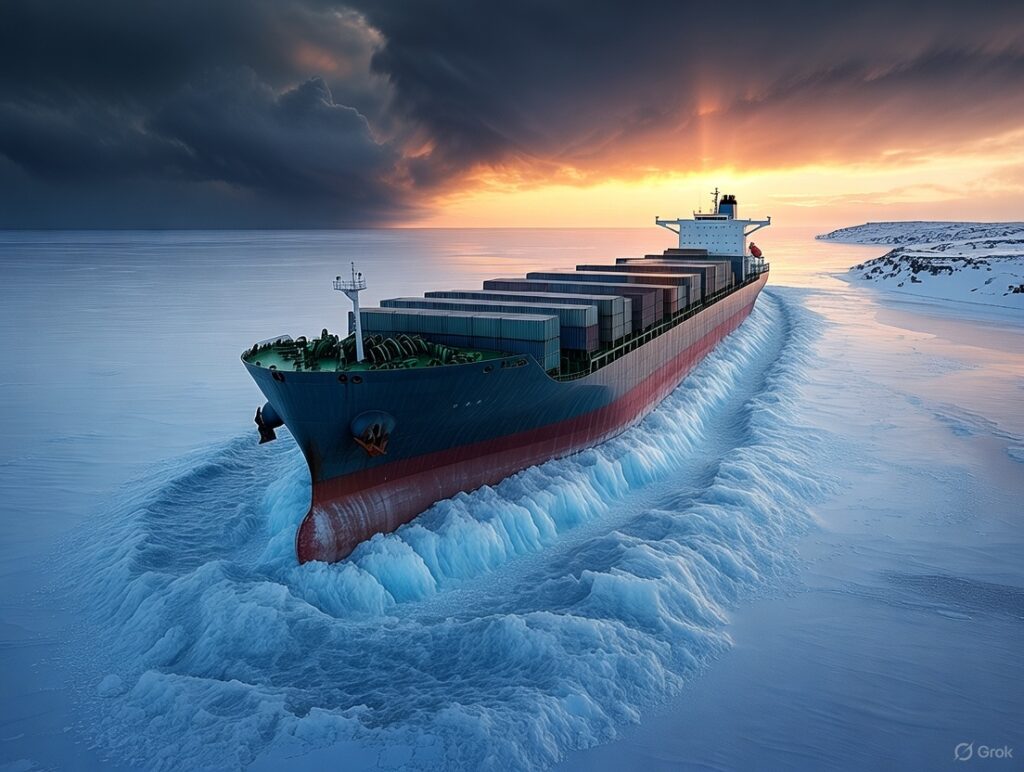❄️ Introduction: A Chilling Thought
The oceans cover more than 70% of Earth’s surface, making them our planet’s life engine. They give us water, food, oxygen, and even control the weather.
But what if, in one shocking moment, the oceans froze solid overnight? No waves, no currents—just one giant ice sheet wrapping Earth in a frozen grip.
Let’s dive (carefully, without slipping!) into this frosty “what if” and explore the chaos of a frozen world.
🌊 Why Oceans Matter
Before imagining frozen seas, let’s remind ourselves why oceans are so important:
- They act like Earth’s lungs, producing half of our oxygen.
- They regulate climate by absorbing heat and moving it around the globe.
- Billions of animals and plants live in the oceans.
- Humans depend on oceans for food, travel, and trade.
If the oceans froze solid, the very foundation of life on Earth would break apart.
❄️ What Would Happen the Morning After?
Picture waking up one morning and finding:
- Ships trapped in giant frozen waves.
- Fish, whales, and dolphins locked beneath thick layers of ice.
- Beaches stretching into endless sheets of white.
- No sound of crashing waves, only silence.
The world would instantly feel alien—like Earth had been swapped for an icy moon.

🌍 Climate Chaos Begins
The oceans don’t just hold water—they control weather. If they froze solid:
- No More Ocean Currents
Currents like the Gulf Stream carry heat around the planet. Without them, regions would swing between burning hot days and freezing nights. - Storms Would Vanish
Hurricanes and rainstorms need warm oceans. Without liquid seas, Earth would become strangely quiet—no rainfall, no thunderstorms. - Drought Everywhere
Rain comes from evaporated seawater. With frozen oceans, clouds would shrink, and Earth would dry up. Crops would fail, rivers would shrink, and deserts would spread.
🐠 The Death of Marine Life
The oceans are home to millions of species. If they froze:
- Fish would be trapped in ice, unable to swim.
- Whales and dolphins, who need air, would suffocate.
- Coral reefs would die instantly, ending homes for thousands of creatures.
- Tiny plankton, which make much of our oxygen, would vanish.
Without plankton, humans would lose half of their breathable air. Earth would slowly choke.
🧑🤝🧑 How Would Humans Survive?
Humans would be hit hard by frozen oceans:
- No Seafood – No fish, shrimp, or seaweed for billions of people.
- No Trade by Sea – Cargo ships couldn’t move. Global trade would collapse.
- Freshwater Shortage – Many cities rely on ocean water turned into drinkable water. Frozen oceans mean no supply.
- Coastal Cities in Chaos – Ports like New York, Mumbai, and Tokyo would be ghost towns.
Humans might retreat inland, fighting for food and clean water.
🐧 What About Animals on Land?
Land animals also depend on oceans.
- Polar bears and penguins would have too much ice, but no fish to eat.
- Birds that migrate across seas would starve without food.
- Forests and grasslands would dry up because rain would vanish.
Soon, the entire food chain would collapse, leaving Earth barren.
🌡️ Would Earth Become a Snowball Planet?
Yes! Scientists call this scenario Snowball Earth. Long ago, Earth may have frozen almost completely.
- With oceans frozen, sunlight would bounce off the ice instead of being absorbed.
- The planet would cool even more, making the freeze permanent.
- Earth would look like a giant white marble floating in space.
Life might only survive underground, near volcanoes, or deep inside caves.
🚀 Could Humans Use Technology to Adapt?
Humans are clever. If the oceans froze, we might try:
- Drilling through ice to reach liquid water below.
- Building greenhouses to grow crops without rain.
- Creating artificial rain machines to replace natural weather.
- Moving into space colonies or underground cities.
But these would only delay the inevitable. A planet without liquid oceans cannot support life for long.
🔭 Lessons from Other Worlds
This frozen-Earth scenario sounds like science fiction, but we can learn from other planets:
- Europa, a moon of Jupiter, has a frozen ocean beneath its surface. Scientists think it may hold alien life.
- Enceladus, a moon of Saturn, also has icy seas that burst through cracks as geysers.
So, a frozen ocean doesn’t mean life is impossible—but it makes survival much harder.
🌠 Conclusion: Why We Need Our Liquid Oceans
If the oceans turned solid overnight, Earth would face:
- Climate collapse
- Loss of oxygen and rain
- Mass extinction of animals and plants
- Humans struggling for survival
The oceans are more than water—they are the heartbeat of Earth. They keep us alive, cool the planet, and balance life.
So next time you hear the waves crash on the shore, remember this: without liquid oceans, Earth wouldn’t just be different—it would be a frozen chaos where life as we know it could not exist.